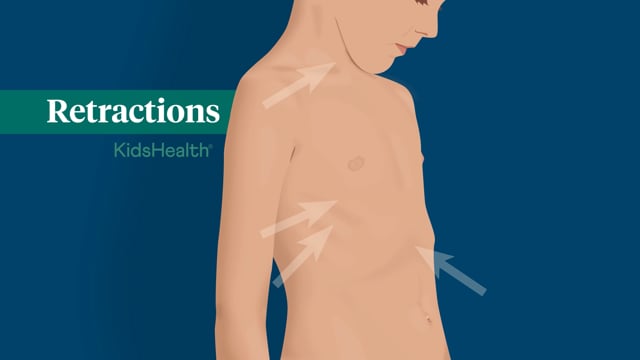parents
Definition: Retractions
Retractions
Retractions are a sign that someone is working hard to breathe. The areas below the ribs, between the ribs, and in the neck sink in with each attempt to inhale. Normally, when you take a breath, your diaphragm and the muscles around your ribs create a vacuum that pulls air into your lungs. (It's kind of like sucking liquid through a straw.) But if a person is having trouble breathing, extra muscles kick into action. The use of these muscles results in retractions, which can be seen as the person tries to inhale (breathe in).

Retractions

 Note: All information is for educational purposes only. For specific medical advice,
diagnoses, and treatment, consult your doctor.
Note: All information is for educational purposes only. For specific medical advice,
diagnoses, and treatment, consult your doctor.